Strictly Personal
Kuje: Did we hand over Nigeria to terrorists in 2015? By Festus Adedayo
Published
2 years agoon

For those who watch the complicated Nigerian security mess from afar, the killing of Japanese ex-Prime Minister, Shinzo Abe in Nara, Japan last Tuesday and the ambushing, same day, of President Muhammadu Buhari’s advance convoy in Dutsinma, about 152 kilometres from his hometown of Daura, Katsina State, both speak to rising global insecurity. A few hours after on that same Tuesday, that joke went burst. Approximately three hours after shelling the president’s advance convoy with an assortment of bullets, killing two people in the process, around 10pm, terrorists stormed the Kuje Custodial Centre in the Federal Capital Territory (FCT) Abuja, in a night-time attack that left a security personnel and six inmates dead, with about 600 inmates, 65 reported to be detained Boko Haram inmates, at large. Arriving the prison in a convoy of motorcycles, the terrorists detonated several bombs and deployed Rocket-Propelled Grenades (RPGs), General Purpose Machine Guns (GPMGs) and a profusion of AK-49 assault rifles, AK-47 assault rifles, as well as service pistols to aid their penetration of the prison.
Once inside the prison, the terrorists had what looked like a saturnalia. First was that they reportedly entered the Kuje prison facility through the bush and from its backend. This path was where the Nigerian military armoured tanker guarding the facility was stationed, with its dilating-eyed, readied platoon of sharp-shooters. So they drove in, unchecked and without any shred of resistance. Reports had it that this area that the terrorists trod into the custodial centre was usually manned by army officers who the Army authorities deployed about 12 hours before the attack took place. This location is the first contact of anyone meandering into the facility, which the terrorists also did as they arrived the facility. Strolling in without any resistance the terrorists approached the Civil Defence officers’ point. Were the situation normal, this was where a hailstone of bullets ought to have been rained on the terrorists by soldiers.
Again, in a very suggestive way, the terrorists did not do any violence to the armoured tanker they met, en-route the facility. They did not even rupture a pin of the deadly machine’s parts. If you compare this “magnanimity” of the terrorists with the fit of madness they went into by setting ablaze several vehicles parked about 10 metres off the military tanker in the premises of the Kuje prison, the terrorists deserved a national award for helping to safeguard national asset. In all however, you will conclude, as the Yoruba say when they suspect an admixture of mischief and Satanism, that the snake, in this circumstance of the Kuje attack, indeed had its hidden hands tucked off view.
For two hours and forty five minutes, the terrorists, reportedly numbering about 300, annexed Kuje as a temporary headquarters of their Satanic Empire. Thereafter, they set the prison’s records office on fire. If the maishayi in charge of serving the terrorist comrades their hard drugs-embossed tea was in the mood to follow them to that triumphant rescue of their comrades in Kuje, he would have had a field day serving them while the operation lasted. One after the other, the terrorists, who gained access to the facility by bombing the walls with explosives, reportedly called the over 60 terrorists in captivity by their names and bombed the cell doors open. Shouts of grisly, triumphal Allahu akbar rend the air, entwined by huge balls of fire and booms of bazookas and bombs. Kuje would feel like a theatre of war reminiscent of the bombings in Sarajevo during the Bosnia and Herzegovina war of the early to mid-1990s. Then, the terrorists began a long sermon on Jihadism and winning of souls of the inmates.
Before releasing their comrades in terrorism, comprising 64 high-profile terrorists and more than 260 other hardened criminals who were set free, media reports said that the terrorists peremptorily breached the custodial facility’s security without a single pushback from the security that was usually deployed to Kuje prison. Indeed, said media reports, no single shot was fired by a platoon of security men in Kuje that comprised military, DSS, Police, Immigration/Prisons Armed Squad. More petrifying was the report which indicated that the expended bullet shells that were seen on the floor after the attack were left as terrifying memorabilia of the terrorists’ superiority over the Nigerian state. The Nigerian security, made up of same gallant officers who received garlands from the United Nations in peacekeeping operations in Darfur, Liberia, Sierra Leone, Chad, among others, like frightened cats that tuck their tails inside thighs when outpaced, all faded into thin air for the almost three hours of the attack. Gallant officers that they were, they only reappeared when their terrorist comrades had completed their national assignments, on the verge of leaving in a triumphal celebration.
Very unlike him, with his globally celebrated medallion for pussyfooting and national aloofness, President Buhari was in Kuje almost immediately. And I must say that he deserves national commendation for the brilliant performance of the role that the Producer of the national opera cast for him. The second day, being Wednesday, on his way to the Nnamdi Azikiwe International Airport for an international junket to Dakar, Senegal which he could very well have sent his Vice, Buhari actually honoured Nigeria with his august visit to Kuje. As a symbol of national shame that the attack was, Buhari could have, there and then, announced his decision to abandon the junket, a number of which, in the last two months, have since become the paterfamilias of his departing lame duck administration. So Buhari stopped by at the Kuje Correctional Centre and for about 30 minutes, played his cast role in the surreal drama quite commendably.
Like a knowledgeable cast who understood his role well enough, Buhari openly queried the intelligence gathering system in Kuje which resulted in the attack. He expressed worry at the level of damage done and queried, for optical effect of the camera, “How did the defences at the prison fail to prevent the attack? How many inmates were in the facility? How many of them can you account for? How many personnel did you have on duty? How many of them were armed? Were there guards on the watchtower? What did they do? Does the CCTV work?” Smart Nollywood actor this was!
After effectively performing his cast role, as they say in Shakespearean theatre lingo, Buhari exeunted. Then came unto the scene another of the cast, Garba Shehu. Untutored, this cast immediately provided a poetic enjambment to this inchoate poem of sorrow. This is a cast who always provides comedic relief to every of the grief-stricken drama of the presidency. As if one knew that the Abe Shinzo tragedy in Japan would be alluded to by this actor, Shehu, reacting to allegation that by flying directly from a place of mourning to his junket rendezvous, Buhari did worse than Nero who fiddled while Rome burnt, he said that, not embarking on the trip by Buhari would have meant that government should stop working. No nation stops working because they faced terrorist threats, Shehu said in a quote that sounded like an inspirational talk to a crowd at the graveyard. “To cancel the trip to Senegal would mean that the terrorists are successful in calling the shots, something that no responsible government in the world will allow”, Shehu said so glibly.
Not long after Buhari departed to play his Nero flute, dramatic ironies began to appear in the melancholic drama at Kuje. First was a cast whose lines became a dramatic disjuncture from the whole script. Ahmad Lawan, President of the Senate, said he saw the Kuje snake hiding its hands within its belly. On a visit to the Medium Security Custodial Centre, Lawan said such cataclysmic and huge attack, without a pushback, could only have been made possible with insider collaboration. Similarly, the man in whose hands lies the operations of the prison, Minister of Interior, Rauf Aregbesola, while leading his team from the ministry to the custodial centre, shockingly demurred from this well-written script of the presidency. In his usually simulated stoicism, the minister revealed that what happened in Kuje was mysterious and benumbing, so much that he was not ready to disclose its awful details in public. He said he was disappointed by the effete defence of the platoon of the Nigerian Army, Nigeria Police Force, officers of the Nigeria Security and Civil Defence (NSCD) and armed officers of the Nigerian Correctional Service, who were armed with sophisticated weapons deployed to the centre who turned their backs while the shelling lasted. As we speak, from Buhari, to the National Security Adviser, the Minister of Interior, to even the Chief of Army Staff, no one has resigned their appointment.
Like many of the Buhari administration’s puerile attempt to hide behind a finger, the raison d’etre of this national embarrassment has since been a subject of discourse on the streets of Nigeria. As they say in street lingo, Nigerians have concluded that the closet burial that Buhari gave his secretly interred body has its legs jutting out for all to see. The Kuje attack, to Nigerians, is the final denouement of the earlier national calamitous opera of the kidnap of train passengers in Katari on March 28, 2022. On that day, at around 7:45 pm, hundreds of passengers, rumoured to be numbering about 970, were abducted by bandits. Eight persons were killed and 26 others injured by terrorists who bombed their train. Several of them were whisked into the bush by the daredevil bandits. Over 150 passengers were declared missing in the encounter.
Negotiations then began between the Federal Government and the terrorists. To rev up the importance of the negotiation, the terrorists released a video that went viral of the abducted passengers sitting under a tree in an unknown location. Media reports claimed that the terrorists demanded the release of their sponsors and commanders in the custody of the Nigerian government as exchange for the abducted victims. This was not the first time the Buhari government would exchange insurgent commanders with abductees. Some months ago when it did, their release paved way for a rev of the insurgency.
Street rationalization cobbled the strands of the Kuje attack together, especially the irresistance of state-funded security operatives to the calamitous Kuje attack. It came to the conclusion that the effeminate, terrorists-sympathetic government of a retired General of the Nigerian Armed Forces, Muhammadu Buhari, unable to rescue its people, agreed with the terrorists that it would feign engagement with other things while the attacks on the Kuje centre was going on. The question then became, what kind of unequal equation would ensure that a government is unable to rescue its people from terrorists while terrorists brazed all odds to rescue their people from the hands of government?
Though it is a route often taken by pacifist and sissy governments, you could say that the Buhari administration, in this equation of what to do with the abducted Nigerians by the terrorists, was before the devil and the deep blue sea. However, the larger indication of the Kuje attack is that terrorists are on the verge of overrunning Nigeria. And Buhari doesn’t care, so far as it is his family members that are doing so. A revelation was made a few years ago that terrorists were all over the Abuja seat of power. When Buhari was being voted into office in 2015, it was on the understanding that a military General, who had risen to the rank of a Major General, was the right person to shell out the insurgents from their base. However, we miscalculated in not realizing the terrorism-baiting inclination and persuasion of the man we were voting into office. At the end of the day, Nigerians became the proverbial farmer who knew that his new farmland was under the grips of squirrels but stubbornly went ahead to make it a plantation of groundnuts. Shouldn’t he have himself to blame as squirrels devoured his harvests?
A very daringly frightening collation of ten examples of General Buhari’s alleged romance with or terrorism-baiting moves was compiled in a viral post last week on the social media. It gave an indication that, with the voting of Buhari into office in 2015, Nigerians might not have voted a Boko Haram supporter into office but they didn’t vote a non-terrorism sympathizer as well. Beginning with the famous 2012 news report of Boko Haram reportedly picking General Buhari to moderate its talks with the Goodluck Jonathan government, another June 2, 2013 report quoted to have been said by Buhari urging Jonathan government to “stop killing Boko Haram members” with Buhari equating a military offensive against Boko Haram as anti-North, as well as a report on November 26, 2018 attributed to some South African mercenaries who allegedly claimed that Buhari stopped them from fighting Boko Haram insurgents, the impression on the street about Buhari isn’t that he runs a terrorism disdainful government.
If you now add these to a worrying list of Buhari government’s soft landing for insurgents who have killed thousands of Nigerian soldiers, rendered thousands homeless and created so many IDPs in the north, like a February 11, 2020 report that the FG was “setting our killers free” attributed to Nigerian soldiers over the release of 1400 Boko Haram fighters, a fertile ground would seem to have been excavated for the insinuations that arose after the Kuje prison attack. It is on record that in Buhari’s Nigeria, where citizens are forced to enroll to have National Identification Number before they can have cell phone numbers allocated to them and non-possession of which invalidates phone possession, terrorists and kidnappers flaunt the use of mobile phones in negotiation of ransoms. The allegation is that Boko Haram sympathizers and accomplices envelope the government of Muhammadu Buhari and his telecommunication ministry is its base.
If the Kuje permutation above that is being bandied on Nigerian street is real, did those who midwife the attack think of its consequences for Nigeria? Allowing terrorists a free rein in Kuje, a few kilometers away from Aso Rock, is a grim construct that evokes a very eerie feeling of foreboding. One is that it invests on the terrorists a can-do spirit. Who says they cannot try the presidential palace, using the same derring-do methodology? Second, 64 freed lethal insurgents on the street of the FCT makes Abuja equal to stepping on landmines. What kind of government hands over its people to terror-minded enemies like this?
The Buhari government’s perceived relationship with insurgents is a tragic irony and an embarrassment to the country. It reveals that the government has turned Nigeria into one huge and horrific jokesville. However, as bad as it is, our bother now should not be on Buhari as it is a lost battle. It should be on how, in 2023, this country will not clone this same cataclysmic mistake in electing its leadership. We must elect a president whose sprit is riled by terrorism. Since 1999, the only administration that possessed this national anger and the capacity to rout insurgents was Olusegun Obasanjo’s. Since Obasanjo’s departure, the country has oscillated in the hands of the feeble, the unable to the embracer of terrorism.
May the soul of that lone NSDC operative, the only man who was said to have attempted to repel the attack of the Kuje terrorists, rest in perfect peace.
You may like
-
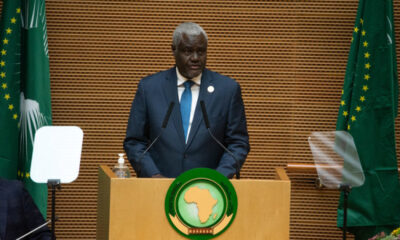

If I were put in charge of a $15m African kitty, I’d first deworm children, By Charles Onyango-Obbo
-


Prince Harry, Meghan treated to street-style dances in Nigeria as their trip winds down
-


Behind the News: All the backstories to our major news this week
-


Civil society organizations sue Nigerian’s central bank over new cybersecurity levy
-


U.S. applauds Nigeria’s monetary policies
-


IMF says Nigeria’s quiet reinstatement of petrol subsidy to gulp 50% of oil revenue
Strictly Personal
If I were put in charge of a $15m African kitty, I’d first deworm children, By Charles Onyango-Obbo
Published
10 hours agoon
May 13, 2024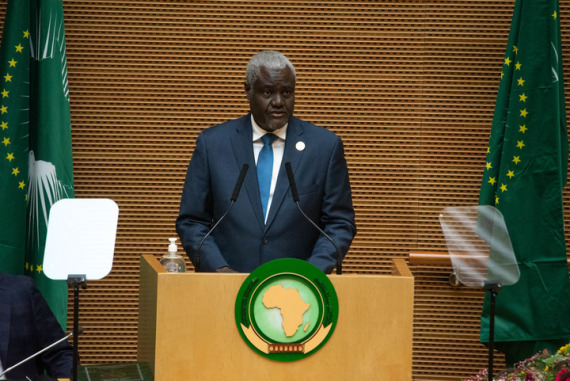
One of my favourite stories on pan-African action (or in this case inaction), one I will never tire of repeating, comes from 2002, when the discredited Organisation of African Unity, was rebranded into an ambitious, new African Union (AU).
There were many big hitters in African statehouses then. Talking of those who have had the grace to step down or leave honourably after electoral or political defeat, or have departed, in Nigeria we had Olusegun Obasanjo, a force of nature. Cerebral and studious Thabo Mbeki was chief in South Africa. In Ethiopia, the brass-knuckled and searingly intellectual Meles Zenawi ruled the roost.
In Tanzania, there was the personable and thoughtful Ben Mkapa. In Botswana, there was Festus Mogae, a leader who had a way of bringing out the best in people. In Senegal, we had Abdoulaye Wade, fresh in office, and years before he went rogue.
And those are just a few.
This club of men (there were no women at the high table) brought forth the AU. At that time, there was a lot of frustration about the portrayal of Africa in international media, we decided we must “tell our own story” to the world. The AU, therefore, decided to boost the struggling Pan-African New Agency (Pana) network.
The members were asked to write cheques or pledges for it. There were millions of dollars offered by the South Africans and Nigerians of our continent. Then, as at every party, a disruptive guest made a play. Rwanda, then still roiled by the genocide against the Tutsi of 1994, offered the least money; a few tens of thousand dollars.
There were embarrassed looks all around. Some probably thought it should just have kept is mouth shut, and not made a fool of itself with its ka-money. Kigali sat unflustered. Maybe it knew something the rest didn’t.
The meeting ended, and everyone went their merry way. Pana sat and waited for the cheques to come. The big talkers didn’t walk the talk. Hardly any came, and in the sums that were pledged. Except one. The cheque from Rwanda came in the exact amount it was promised. The smallest pledge became Pana’s biggest payday.
The joke is that it was used to pay terminal benefits for Pana staff. They would have gone home empty-pocketed.
We revive this peculiarly African moment (many a deep-pocketed African will happily contribute $300 to your wedding but not 50 cents to build a school or set up a scholarship fund), to campaign for the creation of small and beautiful African things.
It was brought on by the announcement by South Korea that it had joined the African Summit bandwagon, and is shortly hosting a South Korea-Africa Summit — like the US, China, the UK, the European Union, Japan, India, Russia, Italy, Saudi Arabia, and Turkey do.
Apart from the AU, whose summits are in danger of turning into dubious talk shops, outside of limited regional bloc events, there is no Pan-African platform that brings the continent’s leaders together.
The AU summits are not a solutions enterprise, partly because over 60 percent of its budget is funded by non-African development partners. You can’t seriously say you are going to set up a $500 million African climate crisis fund in the hope that some Europeans will put up the money.
It’s possible to reprise the Rwanda-Pana pledge episode; a convention of African leaders and important institutions on the continent for a “Small Initiatives, Big Impact Compact”. It would be a barebones summit. In the first one, leaders would come to kickstart it by investing seed money.
The rule would be that no country would be allowed to put up more than $100,000 — far, far less than it costs some presidents and their delegations to attend one day of an AU summit.
There would also be no pledges. Everyone would come with a certified cheque that cannot bounce, or hard cash in a bag. After all, some of our leaders are no strangers to travelling around with sacks from which they hand out cash like they were sweets.
If 54 states (we will exempt the Sahrawi Arab Democratic Republic for special circumstances) contribute $75,000 each, that is a good $4.05 million.
If just 200 of the bigger pan-African institutions such as the African Development Bank, Afrexim Bank, the giant companies such as MTN, Safaricom, East African Breweries, Nedbank, De Beers, Dangote, Orascom in Egypt, Attijariwafa Bank in Morocco, to name a few, each ponied up $75,000 each, that’s a cool $15 million just for the first year alone.
There will be a lot of imagination necessary to create magic out of it all, no doubt, but if I were asked to manage the project, I would immediately offer one small, beautiful thing to do.
After putting aside money for reasonable expenses to be paid at the end (a man has to eat) — which would be posted on a public website like all other expenditures — I would set out on a programme to get the most needy African children a dose of deworming tablets. Would do it all over for a couple of years.
Impact? Big. I read that people who received two to three additional years of childhood deworming experience an increase of 14 percent in consumption expenditure, 13 percent in hourly earnings, and nine percent in non-agricultural work hours.
At the next convention, I would report back, and possibly dazzle with the names, and photographs, of all the children who got the treatment. Other than the shopping opportunity, the US-Africa Summit would have nothing on that.
Charles Onyango-Obbo is a journalist, writer, and curator of the “Wall of Great Africans”. X@cobbo3
Strictly Personal
AU shouldn’t look on as outsiders treat Africa like a widow’s house, By Joachim Buwembo
Published
4 days agoon
May 9, 2024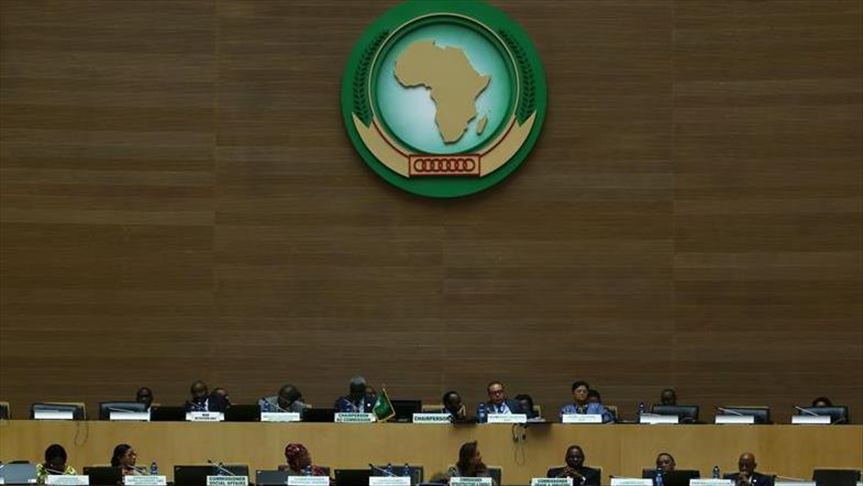
There is no shortage of news from the UK, a major former colonial master in Africa, over whose former empire the sun reputedly never set. We hope and pray that besides watching the Premier League, the managers of our economies are also monitoring the re-nationalisation of British Railways (BR).
Three decades after BR was privatised in the early to mid-nineties — around the season when Africa was hit by the privatisation fashion — there is emerging consensus by both conservative and liberal parties that it is time the major public transport system reverts to state management.
Yes, there are major services that should be rendered by the state, and the public must not be abandoned to the vagaries of purely profit-motivated capitalism. It is not enough to only argue that government is not good at doing business, because some business is government business.
Since we copied many of our systems from the British — including wigs for judges — we may as well copy the humility to accept if certain fashions don’t work.
Another piece of news from the UK, besides football, was of this conservative MP Tim Loughton, who caused a stir by getting summarily deported from Djibouti and claiming the small African country was just doing China’s bidding because he recently rubbed Beijing the wrong way.
China has dismissed the accusation as baseless, and Africa still respects China for not meddling in its politics, even as it negotiates economic partnerships. China generously co-funded the construction of Djibouti’s super modern multipurpose port.
What can African leaders learn from the Loughton Djibouti kerfuffle? The race to think for and manage Africa by outsiders is still on and attracting new players.
While China has described the Loughton accusation as lies, it shows that the accusing (and presumably informed) Britons suspect other powerful countries to be on a quest to influence African thinking and actions.
And while the new bidders for Africa’s resources are on the increase including Russia, the US, Middle Eastern newly rich states, and India, even declining powers like France, which is losing ground in West Africa, could be looking for weaker states to gain a new foothold.
My Ugandan people describe such a situation as treating a community like “like a widow’s house,” because the poor, defenceless woman is susceptible to having her door kicked open by any local bully. Yes, these small and weak countries are not insignificant and offer fertile ground for the indirect re-colonisation of the continent.
Djibouti, for example, may be small —at only 23,000square kilometres, with a population of one million doing hardly any farming, thus relying on imports for most of its food — but it is so strategically located that the African Union should look at it as precious territory that must be protected from external political influences.
It commands the southern entrance into the Red Sea, thus linking Africa to the Middle East. So if several foreign powers have military bases in Djibouti, why shouldn’t the AU, with its growing “peace kitty,” now be worth some hundreds of millions of dollars?
At a bilateral level, Ethiopia and Djibouti are doing impressively well in developing infrastructure such as the railway link, a whole 750 kilometres of it electrified. The AU should be looking at more such projects linking up the whole continent to increase internal trade with the continental market, the fastest growing in the world.
And, while at it, the AU should be resolutely pushing out fossil-fuel-based transportation the way Ethiopia is doing, without even making much noise about it. Ethiopia can be quite resolute in conceiving and implementing projects, and surely the AU, being headquartered in Addis Ababa, should be taking a leaf rather than looking on as external interests treat the continent like a Ugandan widow’s house.
Buwembo is a Kampala-based journalist. E-mail:buwembo@gmail.com
EDITOR’S PICK


Cut to undersea cable causes internet disruptions across East, Southern Africa
Internet services across East and Southern Africa have suffered outages following undersea submarine cable cuts on Sunday. According to the...


Ghanaian rapper Sarkodie fires shots at Davido, Wizkid, Burna Boy, Asake in new single ‘Brag’
Ghanaian rapper, Michael Owusu Addo, popularly known as Sarkodie, has sparked a new round of storm after he fired shots...


Tobi Amusan sets world-leading time at Jamaica Athletics Invitational
World 100m hurdle record-holder, Tobi Amusan of Nigeria, was the cynosure of all eyes as she stole the show at...


Aspiring journalist offers insights on media freedom and information access in Zambia
Ireen Mundia, a student journalist, has contributed to the discourse on media freedoms, drawing from her internship experience at Byta...


Nigeria’s antigraft body EFCC to team up with UK prosecutors in ex-minister Diezani’s $2.5bn fraud case
There were indications over the weekend that the Economic and Financial Crimes Commission (EFCC) intends to collaborate with UK prosecutors...
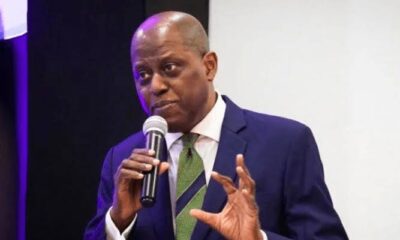

Tinubu reportedly orders CBN to suspend unpopular cybersecurity levy after public outcry
President Bola Tinubu has reportedly mandated the Central Bank of Nigeria (CBN) to suspend the implementation of a controversial cybersecurity...


If I were put in charge of a $15m African kitty, I’d first deworm children, By Charles Onyango-Obbo
One of my favourite stories on pan-African action (or in this case inaction), one I will never tire of repeating,...
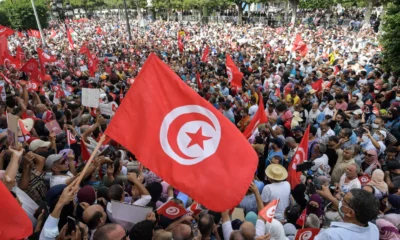

Mass protest in Tunisia for release of political prisoners, fair elections
Hundreds of demonstrators gathered in Tunisia’s capital on Sunday to demand the release of imprisoned journalists, activists, and opposition members,...


Prince Harry, Meghan treated to street-style dances in Nigeria as their trip winds down
On Sunday, Prince Harry and his wife Meghan were treated to street-style dances in Lagos, Nigeria’s commercial capital, where they...


Behind the News: All the backstories to our major news this week
Over the past week, there were lots of important stories from around the African continent, and we served you some...
Trending
-

 Behind the News1 day ago
Behind the News1 day agoBehind the News: All the backstories to our major news this week
-

 Politics1 day ago
Politics1 day agoCivil society organizations sue Nigerian’s central bank over new cybersecurity levy
-

 Musings From Abroad11 hours ago
Musings From Abroad11 hours agoPrince Harry, Meghan treated to street-style dances in Nigeria as their trip winds down
-
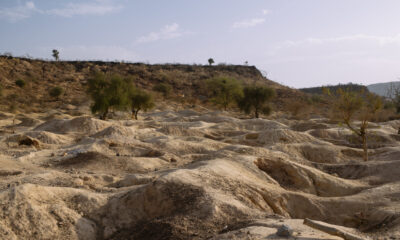
 VenturesNow1 day ago
VenturesNow1 day agoAfrican leaders seek innovative methods to boost agriculture


